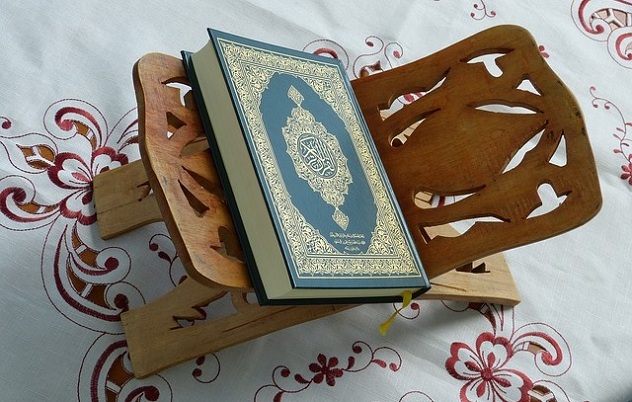The most important component of Islamic culture is the creed of Monotheism. Belief in the Oneness of God is manifest in all of the activities of Muslims, ranging from spiritual conviction to practical conduct and from worship to festivals and ceremonies.
Five times in a day it is proclaimed from the minarets of the mosques that no one is worthy of worship except One God.
Homes and workplaces of Muslims are expected to be free from every trace of idolatry and polytheism photographs, statues and images having been prohibited to them by their religion.
The same principle has to be followed even while making or buying toys for children.
Extreme Importance on Avoiding Shirk (Polytheism) in Islam
Be it a religious or a national celebration, the birthday of a spiritual leader or a political hero, or the ceremony of national flag-hoisting, it is forbidden to Muslims, and repugnant to their Monotheistic civilization, to bow before a portrait or an image or to stand reverently before it or to pay it Moral tributes in any form.
The transgression of the limits of Monotheism, in imitation of the manners and customs of another people or from any other motive, even in such minor matters as the giving of a name, the observation of a function or ceremony, the showing of respect to elders or the expression of one’s modesty and humility is an act prejudicial to the spirit and teachings of Islam.
Wherever Muslims will be earnest in their loyalty to the Islamic civilization, they will remain strictly removed from such practices.
Related: Faith-The first pillar of Islam
Human Dignity and Equality in Islam
The notion of human dignity and equality has become a part of the essential nature of Muslims and a permanent attribute of Islamic character. Consider the following aspects of Islamic culture:
Things like social exclusiveness or untouchability are completely foreign to Muslim society.
A Muslim will have no hesitation in dining with another Muslim or any other person.
Several Muslims will readily eat from the same vessel; one will freely partake of the other’s left-over, or drink the water left behind in his tumbler.
The master and the slave will fall in the same row and offer up Namaz, standing shoulder to shoulder with each other.
Any learned person, however lowly he may be, socially or economically, can lead the prayers and the highest dignitaries and noblemen will follow him readily.
Related: Equality and brotherhood in Islam
Other Attributes of Islamic Culture
Besides these fundamental characteristics, there are some other distinguishing features of a lesser importance of the Ibrahimi Civilization that are common to Muslims everywhere. Those include habits and customs such as:
- Performing of all good deeds, like eating or drinking or the passing over of something to anyone with the right hand.
- Dress-restrictions—the dress, for instance, must cover the body properly, the garment for the lower extremities should be long enough to conceal the knees and short enough to stop above the ankles, and men are forbidden the use of silk.
- Stress on cleanliness.
Adherence to these regulations will generally be the rule where Islamic Civilization is present in its true, unpolluted form, and where it is not so, it will be a sign of social and moral degeneration.
Recommended:

